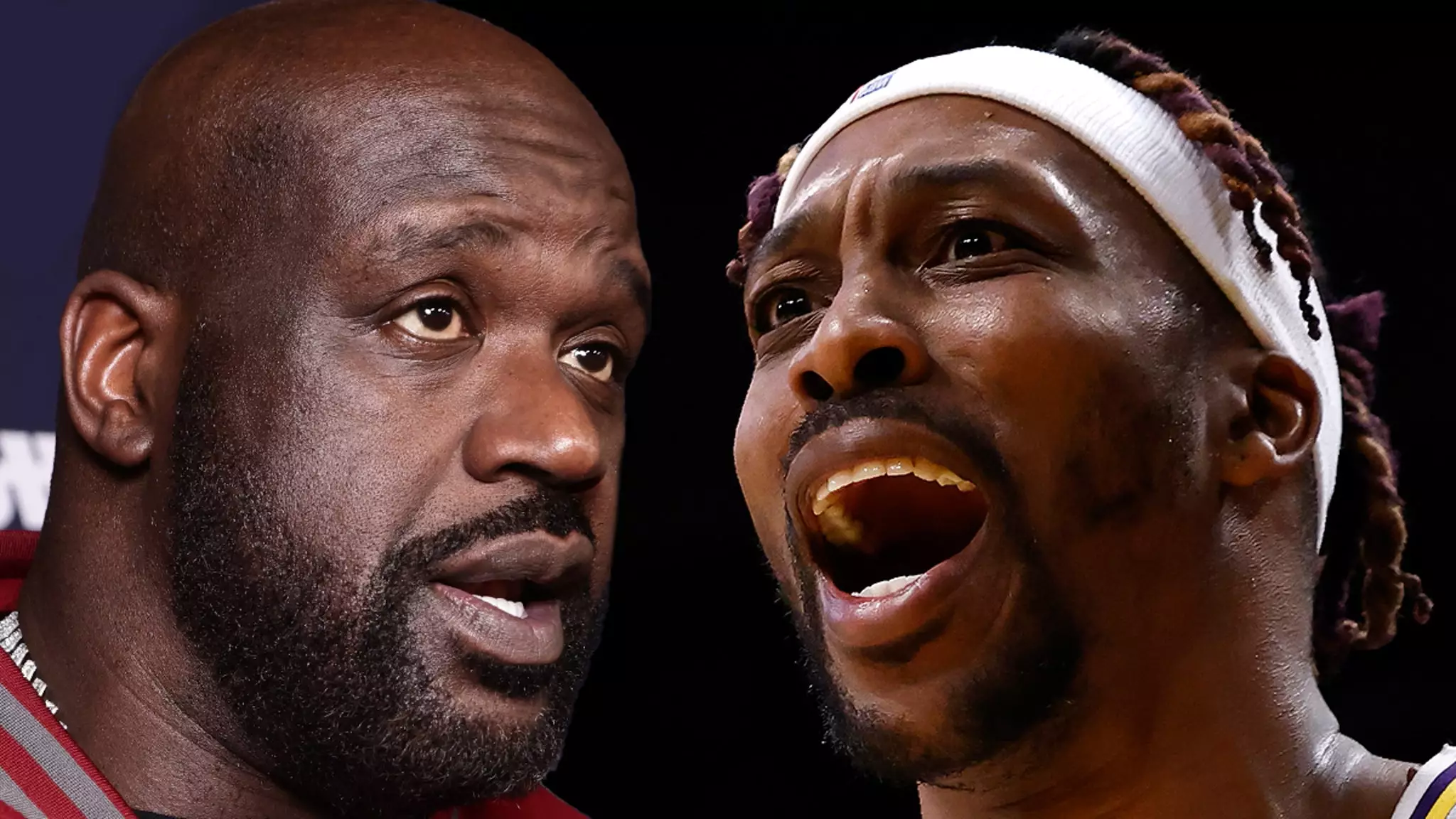In the world of professional basketball, rivalries often take on a life of their own, and the longstanding feud between Shaquille O’Neal and Dwight Howard is no exception. O’Neal has recently made headlines by announcing he has “deleted” Howard from his life, indicating a dramatic shift in their tumultuous relationship. This declaration comes after years filled with tension and public spats, rooted primarily in Howard’s controversial appropriation of the “Superman” moniker, a name that O’Neal famously claimed during his exceptional career in the NBA.
Understanding the Roots of the Feud
The friction between O’Neal and Howard runs deeper than mere nickname grievances; it symbolizes a clash of basketball philosophies, personal insecurities, and the burden of legacy within the sport. For many fans, O’Neal is firmly positioned in the upper echelons of basketball greatness, whereas Howard has continually struggled to gain similar recognition despite his achievements. In a recent podcast, Howard revealed the depth of his frustrations, reflecting on the years of conflict that led him to contemplate a physical confrontation with O’Neal. He suggested that a face-to-face showdown might be the only way to settle their score, a sentiment that echoes the hyper-competitive nature intrinsic to professional athletics.
Following Howard’s podcast revelations, O’Neal did not hesitate to voice his displeasure on social media. His response was sharp, dismissing Howard’s grievances with a mocking tone. He asserted that the notion Howard thought he cared about him was laughable, ultimately proclaiming he would never mention Howard again. This dismissive attitude fueled the fire of their rivalry, prompting Howard to retaliate. In his response, Howard leveled accusations of insecurity at O’Neal, claiming his former foe had been harping on their feud for two decades out of envy. The exchange highlights how social media has become a battleground where athletes can make their grievances public while also providing a platform for fans to engage with this ongoing saga.
The O’Neal-Howard feud serves as a reflection of broader tensions within the NBA, particularly the way legacies are constructed and interpreted over time. Howard’s assertion that O’Neal is “insecure” points to an ongoing conversation about how past heroes handle the emergence of new talent. As younger players begin to challenge established figures, the instinct to protect one’s own legacy can spur unhealthy rivalries, leaving both parties tangled in a web of resentment. Additionally, Howard’s reference to O’Neal’s past relationships with fellow stars like Kobe Bryant and Dwyane Wade indicates the pressures of public perception and external validation that can exacerbate personal rivalries.
Moving Forward
In the end, the public feud between Shaquille O’Neal and Dwight Howard emphasizes the volatile nature of athlete relationships, particularly in the hyper-competitive world of basketball. While O’Neal may proclaim that he has moved on, the reality remains that unresolved feelings and public perceptions can linger long after the statements have been made. As both players continue to navigate their careers well into their post-NBA lives, it remains to be seen if they can truly sever ties or if their rivalry will continue to draw interest from fans and media alike.

Leave a Reply